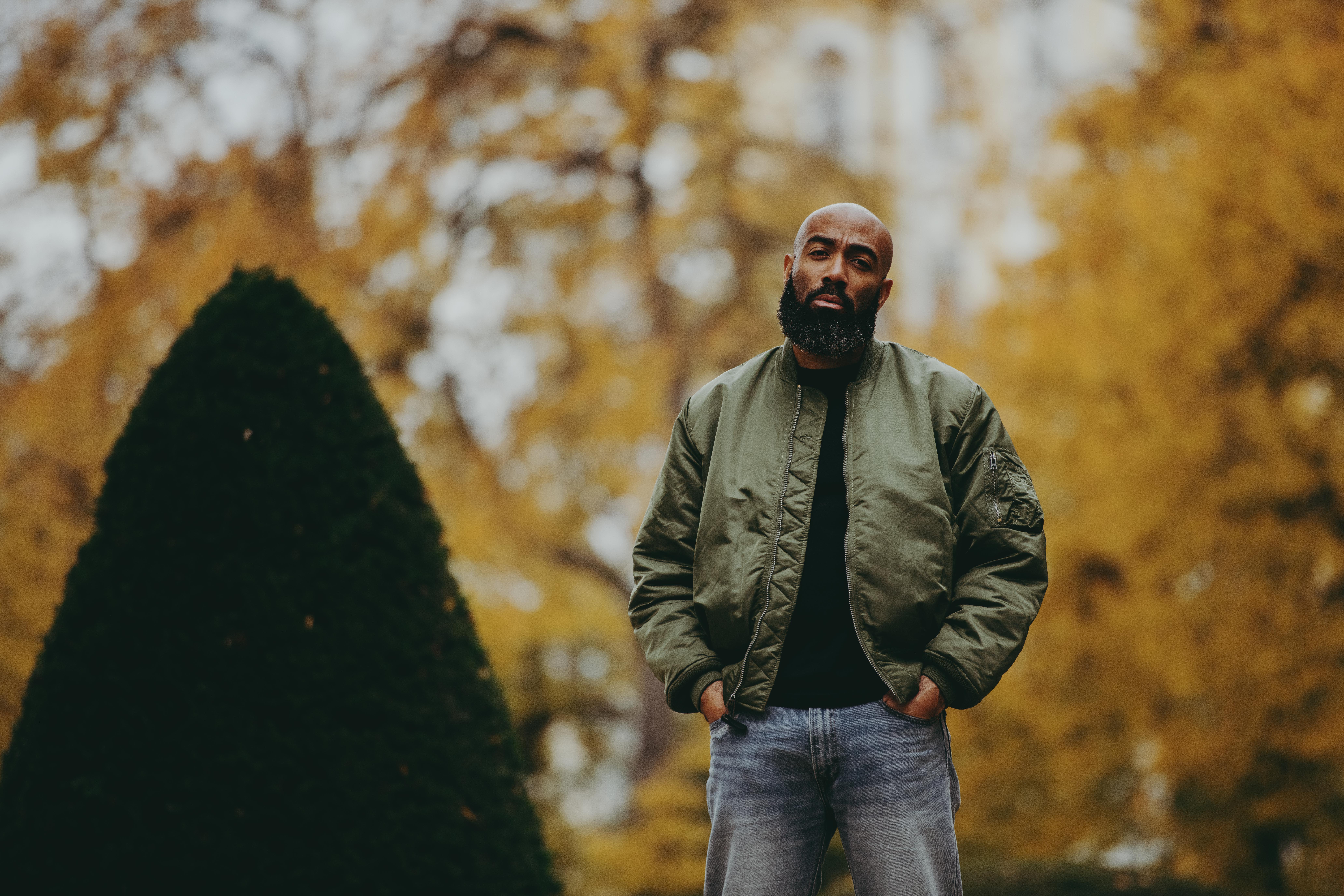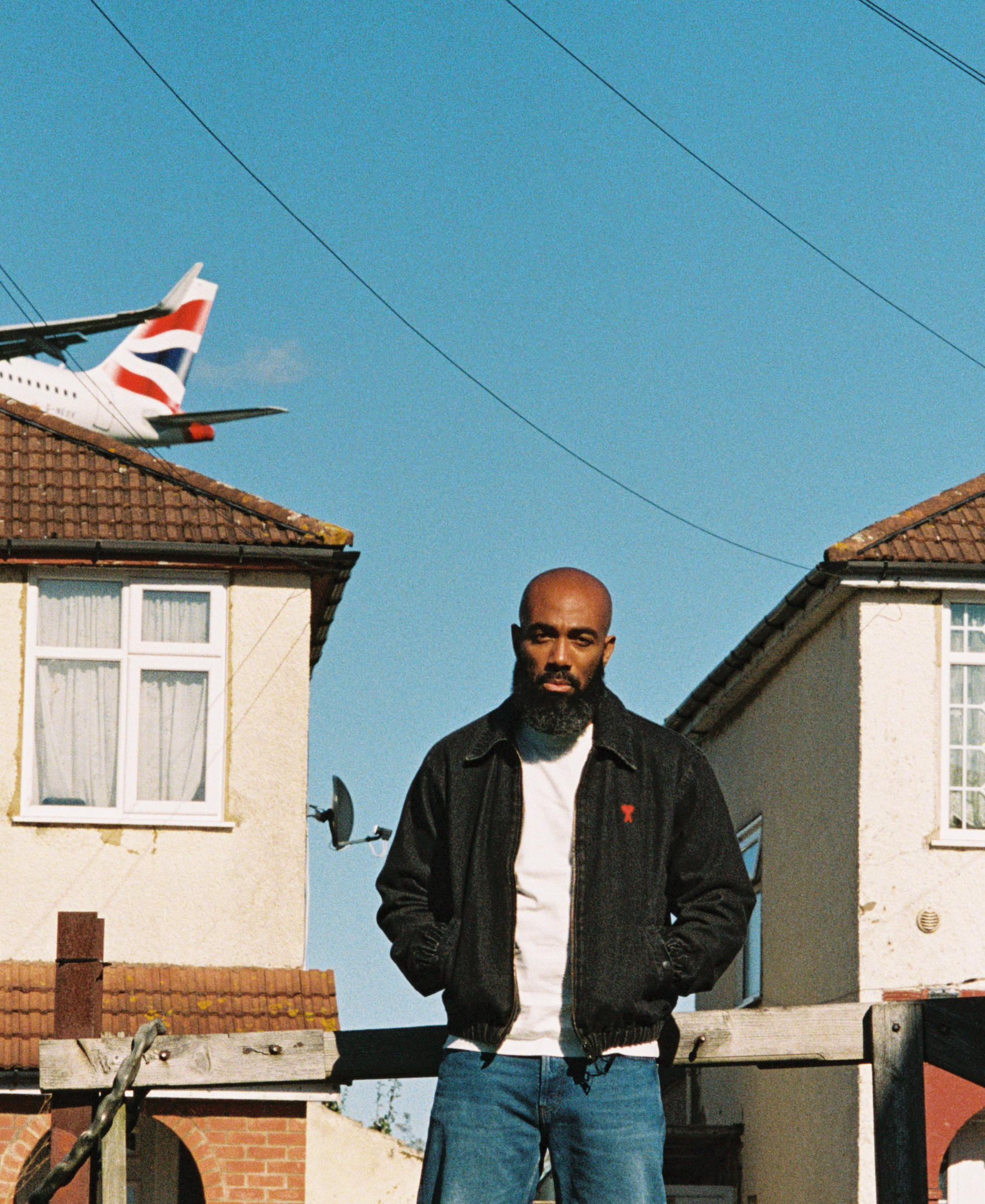‘I Don’t Do Love Songs’: Murkage Dave explores vulnerable masculinity on Valentine’s record
The East London singer-songwriter dives into the messy, turbulent world of modern love and dating on his delicate, humorous compilation, influenced by 90s slow jams.
There are few days in the Gregorian calendar more universally contentious than February 14th. Whether you’re a lover or a cynic, it’s an occasion that demands an outward display of feelings and affection - something that doesn’t come easy to everyone. For Murkage Dave, the date serves as a basis for his latest work, I Don’t Do Love Songs - A Valentine’s Day Compilation, which combines previously released and new music into a mixtape. “I just do things that I like,” he says of the concept. “If I trust the feeling, then I do it.”
Influenced by the slow jams of the 1990s and early 2000s, the compilation is a delicate yet often humorous foray into the world of modern dating, masculinity and gender roles, a conversation we are in desperate need of - particularly men. A recent study by Calvin Holbrook found that male loneliness is a “silent epidemic”, with the pressure to remain silent and stoic triggering deep emotional consequences. For the East-London singer-songwriter, now is the perfect moment for a project that takes a closer look at the realties of masculinity, and asks the question - who is afforded the privilege of vulnerability?
Distancing himself from the likes of Usher and Carl Thomas, Murkage Dave’s vulnerability caught him by surprise. “I'm really not that guy at all,” he admits. “But then, it’s in me a lot - the feeling of ‘you’re not that thing but you want to be’.” Critics might agree with Dave’s assertion that he isn’t “that thing”. He has been wrongly referred to as a grime artist or a rapper on numerous occasions, despite working with a diverse range of collaborators including Caroline Polachek and The Streets, and being influenced by a wide range of genres. He references The Smiths' 1986 single ‘Ask’, which explores themes of seizing romantic opportunities, as a source of inspiration. “Morrissey is a bit of a dickhead now, but a genius level songwriter,” he chuckles.

He utters the line, “tell your dad I don’t make grime for the fifteenth time” on ‘I Don’t Do Love Songs’, pointedly and playfully calling out those quick to pigeonhole him due to him being a tall Black man with a quintessentially Leytonstone dialect. While it is something Dave doesn’t seem overly offended by, the frequency with which he is incorrectly categorised raises questions about identity and the privileges of vulnerability. While patriarchal structures possess a level of rigidity for all demographics, Dave believes there is a perception that Black men fall into three societal archetypes - the violent guy, the virile guy, or the facilitator.
“There’s a lot more to it than that, isn’t there?,” he ponders. “I guess I'm just trying to express myself rather than trying to fit in. So it's not a deliberate thing.” Many R&B crooners of yore were intentional in their desire to position themselves as alpha males and womanisers, but Dave feels it’s simply not something he can pull off himself, especially in an age where audiences can see through the bravado. ‘Get The Girl Save The World’ talks of how ego and gender roles intersect and how expectations laid out by these idealistic love songs are often disparate from reality. “They were having a great time, but they were selling a dream,” he says of old school R&B ballads. “I don’t think you have to be truthful in music, but I just can’t get away with it.”
The requirement to create a false sense of self and have your guard up is something Dave questions about modern dating, characterising this as a “suit of armour” in his lyrics. He challenges the need to appear nonchalant while cultivating a hyper specific version of yourself to be judged by complete strangers. Now in a relationship and managing to evade the dating app era himself, Dave is still acutely aware of how consumerism and the gamification of dating has impacted interpersonal relationships, as well as our relationships with ourselves.
“You've got to prepare your page in a way which impresses the maximum number of people,” he says. “I think that's kind of the first wrong step, isn't it?” He believes treating people as algorithms creates expectations that can be impossible to live up to, and the little idiosyncrasies that naturally come with meeting new people are too often reduced to flags of varying colours. With lyrics that ponder why it was “so easy” for Denzel [Washington], Dave bluntly unpacks the mythology that comes with buying into a relationship for the sake of how it might look on the outside. “Everybody's a bit weird. Once you get to know them properly, you see that the weirdness of some people fits with the weirdness of others and some doesn’t.”

‘Big Man But I’m Shy’ points to the expectations that weigh on men like Dave, who stands at 6' 2”, and the internal struggle of expressing overt vulnerability while possessing a stature that suggests otherwise. “You get this, especially with Black men,” he explains. “You tend to compensate for that. But people are naturally scared of you.” A track that opens with the earnest, “Type out the message / Read it back / Nah, that sounds too thirsty,” he aptly captures the anxiety that comes with putting yourself out there. The fear of rejection or a bruised ego is laid bare in this track, tackling the emotions associated with making these kinds of decisions, rather than placing blame on women for negative dating outcomes.
Masculinity is a hot topic right now, with a sharp rise in young men falling prey to ill intentioned external forces, like media personality and suspected sex trafficker Andrew Tate. It’s something Dave has witnessed first-hand with men in his wider circles. “These kinds of guys that are unsure about themselves, they don't really have a sense of identity,” he argues. “My youngest brother has a lot of friends who subscribed to the Andrew Tate stuff. And some have gone too far.” On Tate himself however, while acknowledging the real-life effects of his output and shock tactics, Dave sees a simplistic message packaged up in a fake, aspirational lifestyle. “It’s Sesame Street-level self help,” he says bluntly. “You can find the actual information anywhere.”
Now in his thirties, Dave isn’t exactly part of Tate’s target demographic, but the spirit of adolescence is a prevalent theme throughout his compilation. He reminisces about his youth in a time that predates DM slides, trying to chat up girls in Stratford Mall with nothing but shrewd wordplay and his Born To Do It-era Craig David goatee. “You had thirty seconds to do your thing,” he chuckles. “It was like a job interview or The X Factor.”
Despite being mild mannered and deeming himself quite shy, there’s a certain level of confidence Dave possesses that we both recognise is, in part, due to his education. He attended the East London independent school, Bancroft’s, on a government-assisted place for low income families. It’s an Arthur Blomfield designed redbrick institution with leafy fields, rugby pitches and esteemed alumni including actor Alan Davies, writer Hari Kunzru - and me. It was an environment that wasn’t distinct from many other independent schools in fostering a belief that we live in a meritocracy and that our achievements were as impressive as those who didn’t have access to the same level of resources as us. “It was all a lie, [my peers] weren't that capable,” he says. “It was just a good level of education and it was cool to do well, and [teachers] just told you that you were the best, which I rate to an extent but it wasn’t a good environment”. Being one of few Black students and growing facial hair from an early age, Dave admits some teachers were “scared” of him, not affording him the same innocence as his white peers, ascribing “manhood” to someone who was effectively still a child.
Dave notes the white patriarchal undercurrent that flowed throughout the school, while other non-white pupils subscribed to the “model minority” trope, despite not fully assimilating. His time there is an experience he is still unpacking, all these years later, and part of the reason why he is so open and unfiltered in his music. There were some bright spots however, with a visit from writer and poet Benjamin Zephaniah still a vivid memory. “I remember speaking to him for ages afterwards about my music and he was like ‘you’ve started to find your voice’.” In finding and using that same voice on this latest project, Dave is questioning what it really means to be a man in today’s society. Whether it’s your education or the content that you’re consuming, the most radical act is to be all up in your feelings.
The Lead is now on Substack.
Become a Member, and get our most groundbreaking content first. Become a Founder, and join the newsroom’s internal conversation - meet the writers, the editors and more.

